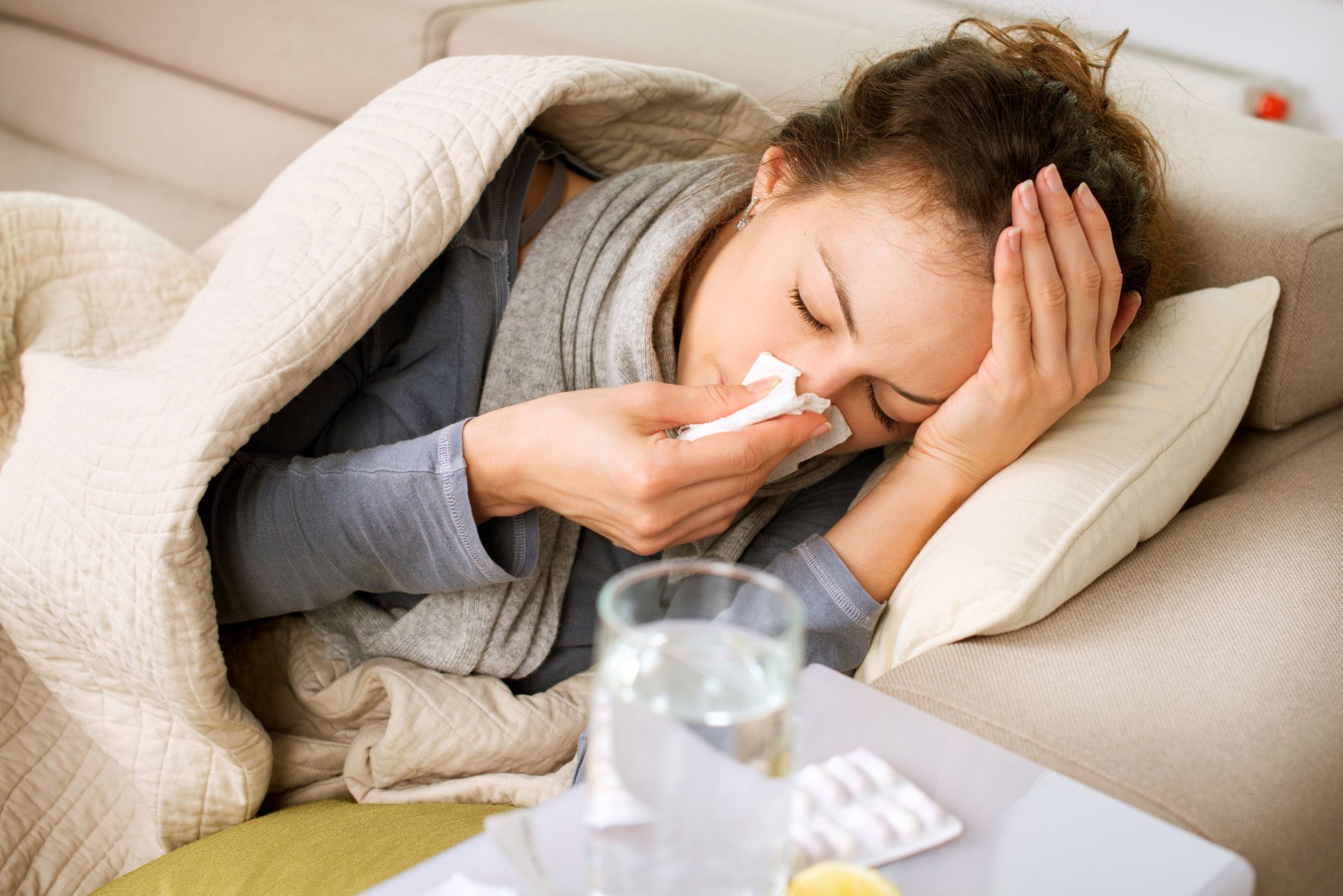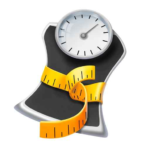OCT 2017: What To Do When You Get The Flu
What To Do If You Get the Flu

The flu isn’t on your top-10 wish list, right? But just in case you get sick this flu season, here’s a list of 10 things you can do to help ease your symptoms—and to stop the flu in its tracks and protect others.
1. Stock up. A few supplies may make it a bit easier to manage the flu. It’s best to have these on hand before you get sick. Otherwise, send a healthy member of your family out on an errand, if you can.
• Acetaminophen, ibuprofen, or naproxen for reducing fevers and easing achiness
• A thermometer
• Cough syrup or cough drops
• Saline nose drops or sprays
• Drinks such as fruit juices or tea (avoid caffeine)
• Easy-to-eat foods such as clear soups, crackers, or applesauce
2. Stay home! The first day you have symptoms, you may be tempted to venture out to work or school. Please don’t! Not only do you need the rest, but this is also when you’re most contagious. Try to nap—and read or binge-watch your favorite television episodes.
3. Prevent the spread. In addition to staying home, wash your hands often and cover your cough and sneeze into your sleeve.
4. Drink fluids, breathe steam. This is a great way to thin your mucus, making it easier to cough up. This may help prevent a lung infection. Using a humidifier (a cool mist) or breathing in steam from a hot shower may also help ease congestion.
5. Calm your cough. It can be exhausting, I know. Try over-the-counter (OTC) cough medicines—an expectorant helps thin mucus. Do not give a child under age 4 any type of cough medicine. Sucking on lozenges may also help your cough or scratchy throat.
6. Ease nose woes. You—or your kids—can try saline nose drops or sprays to ease nasal congestion. First, put a few drops into one nostril. Then gently blow the mucus and saline out. Repeat on the other side.
7. Treat other symptoms. Sure, a fever—along with chills and achiness—is a sign your body is fighting off the virus. But that doesn’t mean you need to suffer in silence. Ask our pharmacist if you have any questions about which fever reducer to take. But don’t forget: Never give aspirin to someone younger than 19—it can lead to a serious illness.
8. Ask about antivirals. Your health care provider may advise you to take one. If you do this within 48 hours of when symptoms begin, you have a fighting chance of reducing their impact.
9. Know when to seek medical help. If you or a loved one has any of these symptoms, call the doctor:
• Dark urine
• Dizziness
• Fever of 100 degrees F for 3 or more days
• Returning fever or sore throat after feeling better
More serious symptoms require immediate medical care:
• Wheezing or shortness of breath
• Coughing up blood
• Chest pain or pressure
• Balance problems or confusion
10. Talk to our pharmacist! And of course it goes without saying: If you need guidance about any products—or any questions whatsoever—let us know, and we’ll try to steer you in the right direction.
Nothing herein constitutes medical advice, diagnosis or treatment, or is a substitute for professional advice. You should always seek the advice of your physician or other medical professional if you have questions or concerns about a medical condition.
SEPT 2017: Weight Loss
Overweight? All Is Not Lost!
 Need to shed 15 or 25 pounds? Try this trick: Pick up a 15- or 25-pound turkey in the grocery store (or a bag of soil at the nursery). Then carry it around for a few minutes. Did you find it tough to do? Extra pounds take a toll, don’t they? But weight gain is often such a gradual process that you might not even realize it’s happening.
Need to shed 15 or 25 pounds? Try this trick: Pick up a 15- or 25-pound turkey in the grocery store (or a bag of soil at the nursery). Then carry it around for a few minutes. Did you find it tough to do? Extra pounds take a toll, don’t they? But weight gain is often such a gradual process that you might not even realize it’s happening.
Sadly, more and more people are dying from weight-related health problems. This includes high blood pressure, cardiovascular disease, cancer, and other conditions. In 2015, 40 percent of 4 million deaths linked to weight were in people who weren’t even considered obese, just overweight. And for those who gain more, the risks are even greater. For example, 44 extra pounds in midlife increases your risk of type 2 diabetes by 10 times. There’s an emotional toll as well. A recent study found that heavy kids faced three times the risk of depression in adulthood.
Okay, enough of the scary statistics. Even small changes can make a big difference. For example, did you know that losing just 7 percent of your body weight can cut your risk of diabetes by 60 percent?
So what can you do? As I’m sure you’re aware, there’s no shortage of weight-loss tips out there. Here are a few backed by recent research:
- Weigh yourself regularly, especially during times of life transition, such as pregnancy or marriage. See the number going up? Nip that trend in the bud before it gets even harder to do.
- Down water instead of other drinks. Following 16,000 adults, researchers found that drinking a glass of water instead of a beer every day reduced the risk of obesity by 20 percent. Substituting water for sugar-sweetened drinks lowered the risk by 15 percent.
- Be wary of artificially sweetened drinks, though. Among 1,000 subjects in seven clinical trials, aspartame, saccharin, and sucralose showed no major weight-loss benefits. In fact, data from 30 observational studies involving 400,000 people showed a link between artificial sweeteners and obesity. These kinds of studies, however, can’t prove a cause-and-effect relationship.
- “Keep on walking, keep on walking,” to paraphrase Dory from Finding Nemo. A global study looked at “activity gaps” and found that waistlines have widened in places where walking rates have declined. The great thing about this activity is that nearly everyone can do it. And it doesn’t cost much, just the price of a good pair of shoes. On your walks, you can also try a few quick bursts of fast walking or running to burn extra calories.
- Get enough sleep. This link might be something you don’t think much about. But studies have shown a lack of sleep may contribute to obesity.
Of course, it goes without saying that you need to focus on healthy food choices, too. Eat more vegetables, fruits, lean meats, fish, and nonfat dairy products. And don’t tempt fate. Keep sugary, starchy foods out of your house, if you can.
If lifestyle changes aren’t quite enough to be effective, your doctor may prescribe a medication or other measures. Ask one of our pharmacists if you have any questions!
Nothing herein constitutes medical advice, diagnosis or treatment, or is a substitute for professional advice. You should always seek the advice of your physician or other medical professional if you have questions or concerns about a medical condition.
- « Previous Page
- 1
- …
- 54
- 55
- 56
- 57
- 58
- …
- 62
- Next Page »
